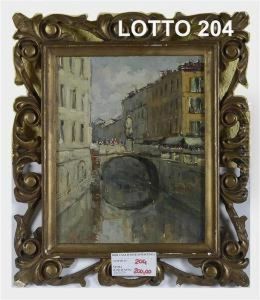Augusto Rivalta Paintings
Augusto Rivalta was an Italian sculptor born on April 21, 1837, in Genoa, Italy. He grew up in a country brimming with artistic heritage, which undoubtedly influenced his decision to pursue a career in the arts. Rivalta received his initial training at the Academy of Fine Arts in Florence, a city renowned for its rich artistic traditions and home to many masterpieces of Renaissance art.
Throughout his career, Rivalta became known for his skill in creating sculptural works that combined classical techniques with a more modern sensibility. His works often included public monuments, statues, and busts, and he was particularly adept at capturing the human form, reflecting the influence of the Renaissance masters while also injecting a sense of contemporary realism.
Rivalta achieved significant recognition during his lifetime. Among his notable works are the bronze doors of the Florence Baptistery, which he worked on in the late 19th century. These doors are an homage to the earlier doors created by Lorenzo Ghiberti, and Rivalta's contribution to this historic site reflects the high regard in which his work was held.
He also created several important public monuments, including those dedicated to prominent figures such as Giuseppe Garibaldi, an Italian national hero. Rivalta's ability to evoke a sense of heroism and patriotism in his monuments made him a popular choice for commissions that sought to celebrate Italy's history and cultural identity.
Augusto Rivalta's contribution to Italian sculpture is significant, and his work continues to be appreciated for its craftsmanship and historical value. After a long and fruitful career, Rivalta passed away on April 12, 1925. His legacy lives on in the many sculptures and public works that adorn Italy, serving as a testament to his artistic talents and the enduring appeal of his sculptures.
